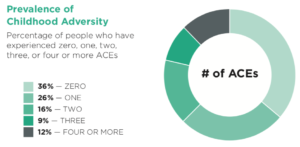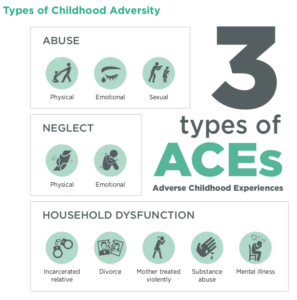- Services
At KVC, we want every child and adult to be safe & connected to a strong family and a healthy community. We’re proud to be a leader in innovative, effective and compassionate care.
Services Near You
Kansas
Nebraska
We also provide consultation and training through the KVC Institute. Learn more about our software and technology.
- Expertise
The Heart of Our Work
KVC helps health and human service agencies excel at caring for families with the most complex needs through a proven model that improves people’s health, their experience of care, and costs.
Focus Areas
- Overview of KVC’s Expertise
- Keeping Children Safe
- Keeping Families Safely Together
- Right-Sizing Congregate Care in Foster Care
- Preventing & Treating Childhood Trauma
- Suicide Prevention Expertise
- KVC’s Partnership with Sesame Street
- KVC Institute Overview
- Free Parenting Tips & Mental Health eBooks
- Consulting for Managed Care & Primary Health
- Consulting on Child Welfare & Behavioral Health
- Impact
- Events
- Get Involved
Children & Families Need You
Through KVC, you can strengthen families, prevent child abuse and neglect, and help create a bright future where every person is safe and connected to a strong family and a healthy community. Please join us today!
- About Us
About KVC
KVC Health Systems is a national leader in mental health and child welfare. Our network of local nonprofits are driven by a common mission, vision and values to strengthen families, prevent child abuse and neglect, and help children and adults achieve mental wellness.
- Blog
Preventing and Treating Childhood Trauma
Overview
It is estimated that 2 out of 3 youth will be exposed to childhood trauma before the age of 16. Traumatic childhood experiences such as abuse, neglect, loss of a loved one, domestic violence, parental substance abuse, natural disasters, and other life-altering events impact how a child views him or herself and responds to the world. Trauma impacts important regions of the brain responsible for problem-solving, emotion regulation and memory. Years of research show that some of the worst health and social problems arise from traumatic childhood experiences.
Childhood Trauma Has Lifelong Effects
 One of the largest investigations into this connection was conducted from 1995 to 1997 at Kaiser Permanente’s Health Appraisal Clinic in San Diego. More than 17,000 individuals participated in the Adverse Childhood Experiences (ACE) Study which involved completing a standardized physical exam along with a confidential survey that contained questions about childhood abuse, neglect, and family dysfunction. Researchers were surprised to find that not only were ACEs common, but a large portion of the group had experienced multiple ACEs. The ACE Study revealed that 67% of the participants had at least one adverse childhood experience, and 20% of participants had experienced three or more. Participants also detailed their current health status and behaviors and as the number of ACEs increased, the risk for health problems also increased in a strong and graded fashion.
One of the largest investigations into this connection was conducted from 1995 to 1997 at Kaiser Permanente’s Health Appraisal Clinic in San Diego. More than 17,000 individuals participated in the Adverse Childhood Experiences (ACE) Study which involved completing a standardized physical exam along with a confidential survey that contained questions about childhood abuse, neglect, and family dysfunction. Researchers were surprised to find that not only were ACEs common, but a large portion of the group had experienced multiple ACEs. The ACE Study revealed that 67% of the participants had at least one adverse childhood experience, and 20% of participants had experienced three or more. Participants also detailed their current health status and behaviors and as the number of ACEs increased, the risk for health problems also increased in a strong and graded fashion.
Exposure to abuse, neglect, family disruption, and violence causes high levels of stress within a person’s body. When this stress overwhelms a person’s capacity to cope, it is called toxic stress or traumatic stress.
The more traumatic stress someone experiences, the more challenging it can be for the person to overcome future stress at home or at work. Again, this is due to the way adversity affects a person’s brain development. The inability to manage stress impacts a person’s health, well-being and ability to succeed in life. Toxic stress also affects communities as a whole because the resulting health problems like depression, obesity, diabetes, heart disease, and cancer are costly and can adversely affect job performance.
A Trauma-Informed Approach by SAMHSA
A trauma-informed approach to care replaces the question of “What’s wrong with you?” with “What happened to you?” Understanding trauma and its impact on the brain, emotions, behaviors and ultimately health can lead to healing.
According to SAMHSA, a trauma-informed approach:
- Realizes the widespread impact of trauma and understands potential paths for recovery
- Recognizes the signs and symptoms of trauma in clients, families, staff, and others involved with the system
- Responds by fully integrating knowledge about trauma into policies, procedures, and practices
- Resists re-traumatization
With a trauma-informed approach, a child’s treatment is focused on providing safe environments, practicing self-regulation and cognitive processing skills, and identifying resources to support the children as they transition back to their home community.
Every child responds to trauma differently. He or she may withdraw, become physically or verbally aggressive, have difficulty forming healthy relationships, struggle in school or make unhealthy choices. It’s important to train every adult involved in the child’s life so that they can help the child cope with their triggers and behaviors in a trauma-informed way.
KVC has integrated trauma-informed care to its child and family services in five states. In particular, our effort to integrate trauma-informed care into the Kansas foster care system was studied over a five year period and shown to have tremendous results. We also have children’s psychiatric hospitals and treatment programs which are trauma-informed.
Learn more about our training and consulting here.
Related articles:
- Fighting the Opioid Crisis
- Recognizing the Signs of Child Abuse
- Fact or Fiction – Find Out What is True About Child Abuse?
- Oprah Winfrey Reports on Childhood Trauma and How to Treat It
- How Childhood Trauma Affects Health Across a Lifetime
- Protecting and Transforming Childhood
- Healing from Life-Long Effects of Childhood Trauma





